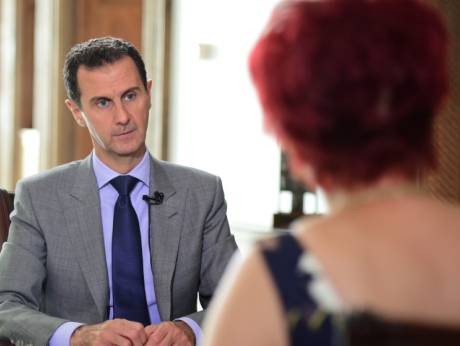Gulf News
Richard Galustian

Syria’s five-year conflict looks, to the outsider, like a war that cannot get much worse. But, with the looming threat of superpower confrontation in Syrian airspace, that could be about to happen.
After five years of almost no action except hand-wringing, Western powers are suddenly making gung-ho statements about no-fly zones and shooting down ‘hostile’ aircraft — including Russian jets.
As a reaction to the bombing of a UN aid convoy — by forces yet to be identified — and the stepping-up of the battle for Aleppo, western politicians and commentators are now flapping about ‘escalation’, oblivious to the potentially ruinous scenario of combat between Nato and Russian jets in Syrian airspace.
For the policymakers, politicians and civil servants in remote chanceries, there would be the satisfaction of showing their voters they are finally taking the Syrian war seriously. However, for the Nato pilots, required to make split-second decisions, amidst the fog of war, regarding which aircraft in their gunsights is targeting civilians rather than rebel troops, it would be a nightmare.
Imagine that, at the touch of a button, a Russian or even Nato jet was downed. The reality is that Nato would have advocated, through ‘escalation’, a war against Russia and it is doubtful such a conflict would be confined to Syrian airspace.
Crucially, this would also do nothing to actually help the Syrian people suffering the consequences of what has become a several-sided war.
The propaganda machine on Syria has been in full swing for years. Very few independent journalists have reported from the regime side in Syria and Western media outlets now mainly rely on suspect sources from the rebel-held territories to inform partial articles that highlight only the suffering of one side, completely ignoring the plight of civilians who face daily bombardments from the so-called moderate rebel opposition.
The West’s renewed interest in Syria and its talk of ‘escalation’ is also a smokescreen for years of inaction and failed foreign policy on this tragic civil war.
Half-hearted efforts in the early years of the conflict, where disparate strands of the so-called moderate opposition were urged to form a common front against the Al Assad regime, led to nowhere. It was clear from very early on that there was no united front against Syrian President Bashar Al Assad, something which has become clearer still as opposition forces splintered into break-away groups, including Al Qaida offshoots, some of which are now fighting each other as well as regime forces.
And that was the West’s best stab at foreign policy on Syria, apart from to slap sanctions on the country which, of course, only worsened the suffering of civilians.
The West continues to ignore the facts that Al Assad has wide, bedrock support in many parts of the country and Russia’s extensive support is not only against the rebel opposition but, crucially, against Daesh, which represents a global threat.
Western calculations overlook these realities and, in so doing, ignore vital common ground. For Putin, Daesh is as much a threat as it is for Obama and, like Washington, the Kremlin is intent on being a part of the solution to these problems.
In Putin’s words: “This is a crisis which was absolutely expected. We in Russia said several years ago that there would be massive problems if our western partners conduct what I have always called the ‘wrong’ foreign policy, especially in regions of the Muslim world.” Although there is little love between the world’s two main nuclear powers, Syria could actually offer an opportunity for a united front against the global threat of terrorism, rather than reigniting the once very real danger of mutually assured (nuclear) destruction and the threat of a Third World War.



